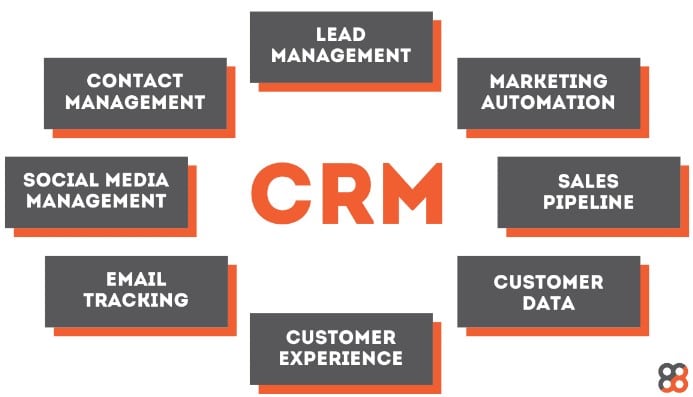Why Your Business Needs a CRM and How to Choose the Right One
Why Your Business Needs a CRM and How to Choose the Right One – As your business grows, it becomes increasingly challenging to keep track of your customer interactions, leads, and sales. You may find yourself drowning in a sea of spreadsheets, emails, and other digital documents, causing confusion and frustration for you and your team. That’s where a customer relationship management (CRM) system can make all the difference. In this article, we’ll explore why your business needs a CRM and how to choose the right one for your unique needs.

What is a CRM?
A CRM is a software system that helps businesses manage their interactions with customers, prospects, and partners. At its core, a CRM is designed to help businesses build stronger relationships with their customers by providing a centralized hub for all customer data, including contact information, purchase history, and interactions across multiple channels, such as email, social media, and phone.
Why Your Business Needs a CRM
Here are five compelling reasons why your business needs a CRM:
1. Streamline Your Sales Process
One of the most significant benefits of a CRM is the ability to streamline your sales process. With a CRM, you can automate many manual tasks, such as lead capture, lead qualification, and follow-up, allowing your sales team to focus on closing deals and building relationships with customers.
2. Improve Customer Experience
A CRM helps you deliver a better customer experience by providing a 360-degree view of each customer’s interactions with your business. This information allows you to personalize your communication and provide relevant offers and recommendations to each customer, enhancing their overall experience with your brand.
3. Boost Marketing Efforts
A CRM provides valuable insights into your customers’ behavior and preferences, allowing you to develop targeted marketing campaigns that resonate with your audience. You can segment your customers based on various criteria, such as location, industry, or purchasing history, and tailor your messaging accordingly.
4. Increase Productivity
A CRM automates many manual tasks, such as data entry and lead tracking, freeing up your team’s time to focus on high-value activities. This increased productivity can lead to a more efficient and effective sales and marketing process, resulting in increased revenue and growth for your business.
5. Gain a Competitive Advantage
In today’s hyper-competitive business landscape, a CRM can provide a significant competitive advantage. By providing a more personalized and streamlined experience for your customers, you can differentiate yourself from your competitors and build long-term relationships with your customers.
How to Choose the Right CRM for Your Business
With so many CRM options on the market, choosing the right one for your business can be overwhelming. Here are some key factors to consider when selecting a CRM:
1. Your Business Needs
The first step in selecting a CRM is to identify your business needs. What are your goals for implementing a CRM? What specific features do you need to achieve those goals? Do you need a CRM that integrates with other tools you’re currently using, such as your email marketing software or website analytics platform? Answering these questions will help you narrow down your options and select a CRM that meets your unique needs.
2. Ease of Use
A CRM is only effective if your team uses it regularly. Therefore, it’s crucial to choose a CRM that is easy to use and intuitive. Look for a system with a user-friendly interface and features that your team can quickly learn and adopt.
3. Customization Options
Every business has unique needs, and your CRM should be able to adapt to those needs. Look for a CRM with customization options that allow you to tailor the system to your business requirements. For example, you may need to create custom fields, workflows, or reports that reflect your specific sales and marketing processes.